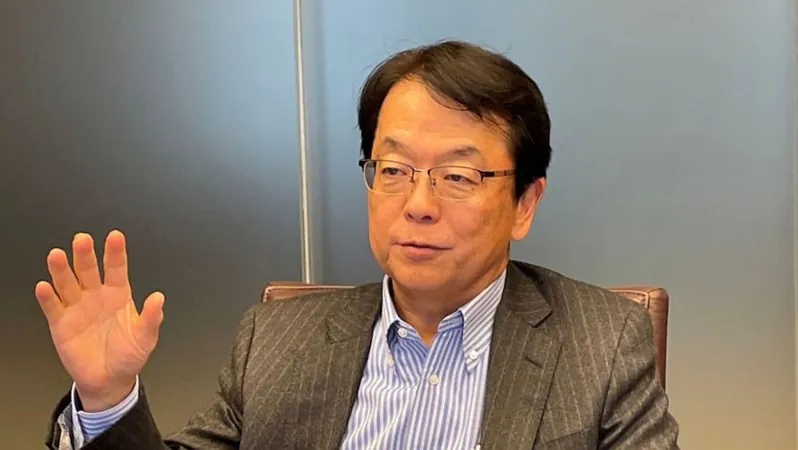
Nippon Steel's Mori Urges USW to Negotiate Amid Rising Political Tensions
2024-09-23
Introduction
In a bold move, Takahiro Mori, Vice Chairman of Nippon Steel, has called for the United Steelworkers (USW) labor union to engage in negotiations regarding the company’s significant $14.9 billion proposal to acquire U.S. Steel. Mori expressed his hope for a collaborative dialogue, emphasizing that without serious consideration from USW President David McCall, progress remains stalled.
Call for Negotiations
Speaking from Tokyo, Mori highlighted that the delay in talks could hinder the potential for a mutually beneficial agreement. 'We just need USW leadership to come to the table. I am hopeful they will do so in the very near future,' he stated, appealing for active participation from the union.
Political Landscape
The backdrop against which this negotiation unfolds is turbulent, marked by increasing resistance from both Democratic and Republican politicians, particularly as the U.S. presidential elections approach. Noteworthy objections have come from prominent figures such as Vice President Kamala Harris and former President Donald Trump, both of whom have expressed concerns over how the deal could impact American steel jobs.
Regulatory Hurdles
Further complicating matters, reports indicate that a U.S. national security panel, tasked with the deal's review, has allowed Nippon Steel and U.S. Steel to refile their application, thereby postponing a decision on this contentious merger until after the critical election day on November 5.
Commitments to Workforce
In his open letter to U.S. Steel’s workforce, Mori reassured stakeholders that Nippon Steel intends to preserve U.S. Steel’s blast furnace operations over the long haul. He emphasized a commitment to using domestically-produced slabs rather than those manufactured overseas, which has been a point of concern for the union.
Future Outlook
Mori also reiterated that Nippon Steel would honor all existing commitments that U.S. Steel has made to the union regarding labor practices, pensions, and employee insurance. 'We will not interfere with U.S. Steel's decisions on trade matters,' he added, indicating a hands-off approach to ensure the stability of U.S. operations.
Conclusion
With plans to finalize the acquisition by the end of December, pending regulatory approvals, the clock is ticking for all parties involved. Will the USW leadership heed Mori's call for negotiation, or will political pressure keep them from the negotiating table? Only time will tell, but one thing is certain – the outcome of this merger could have far-reaching implications for the American steel industry and its workforce.

 Brasil (PT)
Brasil (PT)
 Canada (EN)
Canada (EN)
 Chile (ES)
Chile (ES)
 España (ES)
España (ES)
 France (FR)
France (FR)
 Hong Kong (EN)
Hong Kong (EN)
 Italia (IT)
Italia (IT)
 日本 (JA)
日本 (JA)
 Magyarország (HU)
Magyarország (HU)
 Norge (NO)
Norge (NO)
 Polska (PL)
Polska (PL)
 Schweiz (DE)
Schweiz (DE)
 Singapore (EN)
Singapore (EN)
 Sverige (SV)
Sverige (SV)
 Suomi (FI)
Suomi (FI)
 Türkiye (TR)
Türkiye (TR)